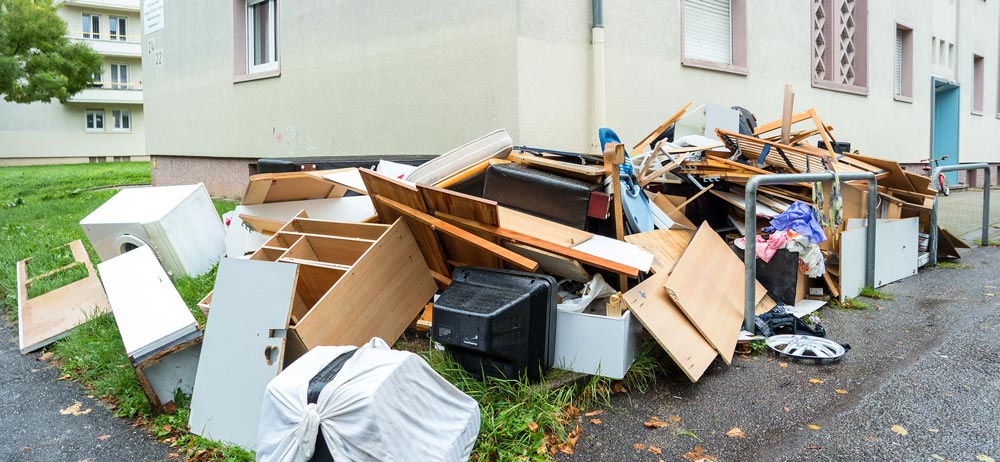
How to avoid a bad tenant?
Having a bad tenant is a risk that every landlord takes into account. Current Estonian legislation provides relatively little protection for landlords against deadbeat tenants. However, there are many things you can do to protect yourself from the problems of an irresponsible tenant.

1. Background research
The use of rental request forms is not yet very common in Estonia. Landlords are often afraid to ask for additional background information. However, background checks are extremely important to help prevent the conclusion of a lease with irresponsible and insolvent tenants.
Before performing a screen, the tenant candidate must be asked for a personal identification code and consent to be used to conduct a background check. Creditinfo’s payment default register allows you to obtain a paid private credit report. The State Announcements page contains notifications related to bailiffs, seizure of property, bankruptcy proceedings, and the tax and customs board and rent commission. E-toimik (in Estonian only) contains data on sentenced persons and related punishments entered into their e-files on the basis of valid court decisions and the decisions of extra-judicial proceedings.
Judgments and defaults are the first part of a background study. It is also worth reading the candidate’s social media profiles. Rentguru offers the opportunity to let the tenant’s candidates fill in the tenant’s profile, where the applicant can add additional information about himself and ask for advice from previous landlords.
2. A proper lease agreement
An oral lease is also legally valid, but in the event of a disagreement, it is difficult to prove oral agreements. There are several things that need to be included in the lease in addition to the amount of the monthly rent and the payment term. For example, it is necessary to indicate separately which additional costs (utility payments, etc.) are paid by the lessee, because otherwise the lessor is responsible for paying those costs. It is also worth considering whether the lease agreement is for a fixed term or for an indefinite period.
In the Rentguru environment, a form of a lease agreement reviewed by a lawyer is available, in which it is easy to add the necessary data and possible specifications of the lease and then send it to the other party for signing.
3. Don’t forget to renew the contract
A fixed-term lease automatically becomes indefinite if the lessee continues to use the rental space after the end of the fixed-term contract and neither the landlord nor the tenant expresses a different intention to each other within two weeks. A lease agreement for an indefinite dwelling is not necessarily bad, allowing, for example, regular cancellation and easier raising of the rental price. In the case of an open-ended lease, it must be taken into account that in such a case the lease can be terminated regularly by both parties to the agreement.
Rentguru makes it easy to renew leases, as automatic notifications notify the landlord in advance when the lease will expire.
4. Automated rental payments
In the Rentguru environment, it is easy to automate the receipt of rental payments. With the tenant’s consent, the rental amount will be automatically deducted from the debit or credit card specified by him on the agreed date. Rental payments are received to the owner’s Rentguru account, from where it is easy to withdraw funds to the desired bank.
It is worth talking to rental candidates about the use of automatic payments even before concluding a lease agreement. The tenant’s reluctance to use automatic payments may be one of the signs that the tenant is not really sure of his monthly solvency.
5. Paying utility bills by yourself
The law also allows an individual to have additional costs reimbursed by a tenant without being included in rental income. In addition, a deduction of 20% is allowed to cover costs, i.e. the final income is calculated from the amount minus the additional costs. Thanks to this statute, many private landlords also prefer, and with good reason, to keep control over the payment of additional costs, i.e. they do not ask the tenant to pay directly for utilities or electricity, but do it themselves and let the tenant reimburse the costs.
Otherwise, the tenant may not actually have to pay several months for the additional costs, as not all apartment associations are particularly keen to report debtors.
6. Communicating with neighbors
If you rent an apartment that you have lived in before, you probably also know the neighbors. However, in the case of an issue specifically related to the lease, it is also worthwhile to establish relations with the neighbors and ask to be contacted if the behavior of the tenants proves to be a problem for other occupants. It is not worth thinking that an apartment association would do it automatically without a prior agreement.
7. Going for an on-site inspection
From time to time, for example once every six months, it is worth visiting the site to check the maintenance of the rented space. The Law of Obligations Act allows a lessor to review the property if it is necessary for the preservation, transfer, or lease of the property to another person. However, the landlord must be notified in advance of the visit and this must be agreed. Rentguru can add a reminder to contact the tenant from time to time and make an appointment.
8. Intervening in case of defaults
If the lessee remains in debt or complaints from neighbors increase, the landlord has the right to cancel the lease agreement in accordance with the provisions of the Law of Obligations Act. If the tenant refuses to vacate the premises after the planned or extraordinary termination of the contract, the case will almost inevitably to go to court. The spontaneous eviction of a tenant is illegal.
However, the experience of the Rentguru team shows that if the preliminary work is thorough, deadbeat tenants can be successfully avoided and there is no need to take legal action.

